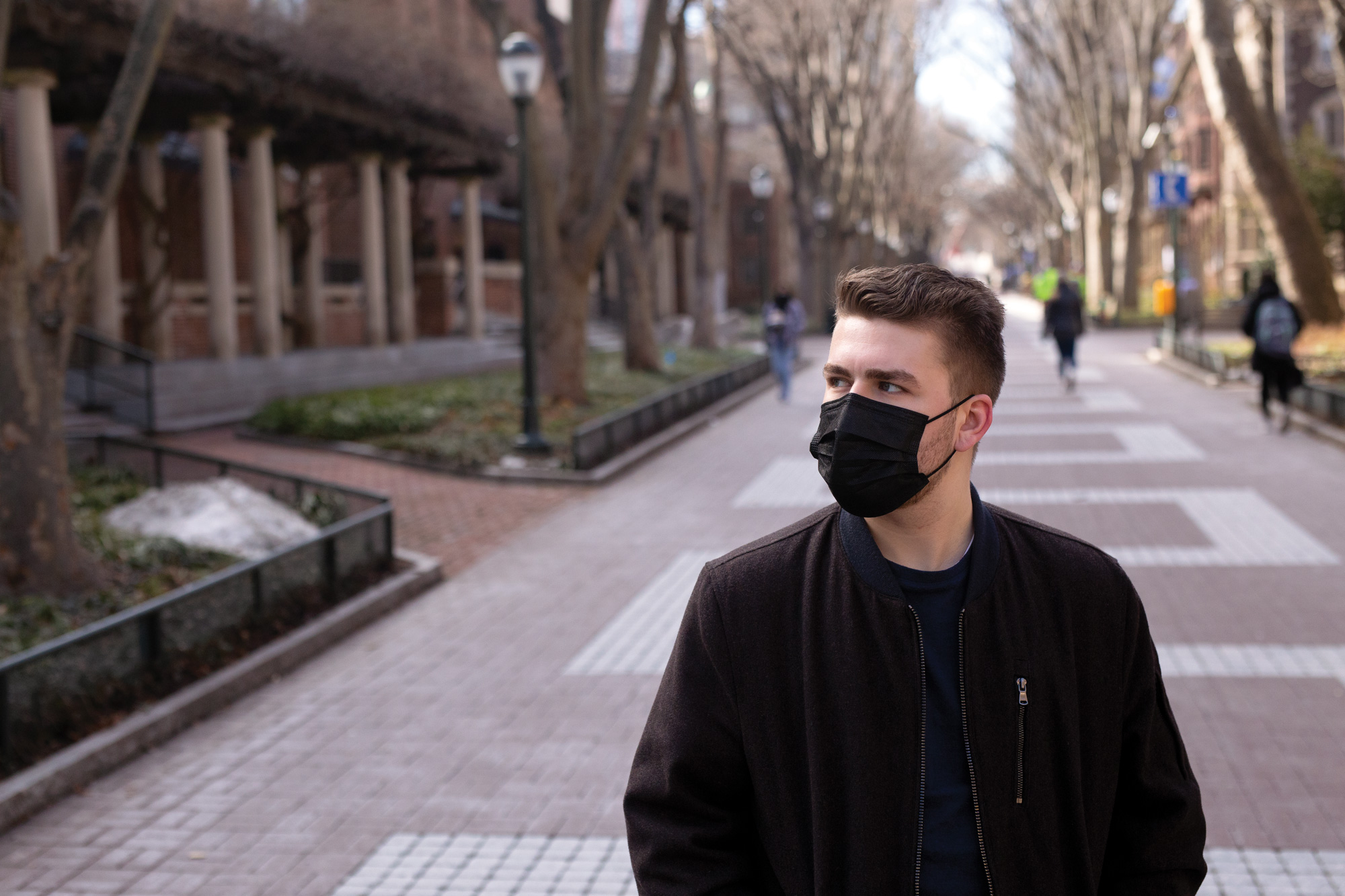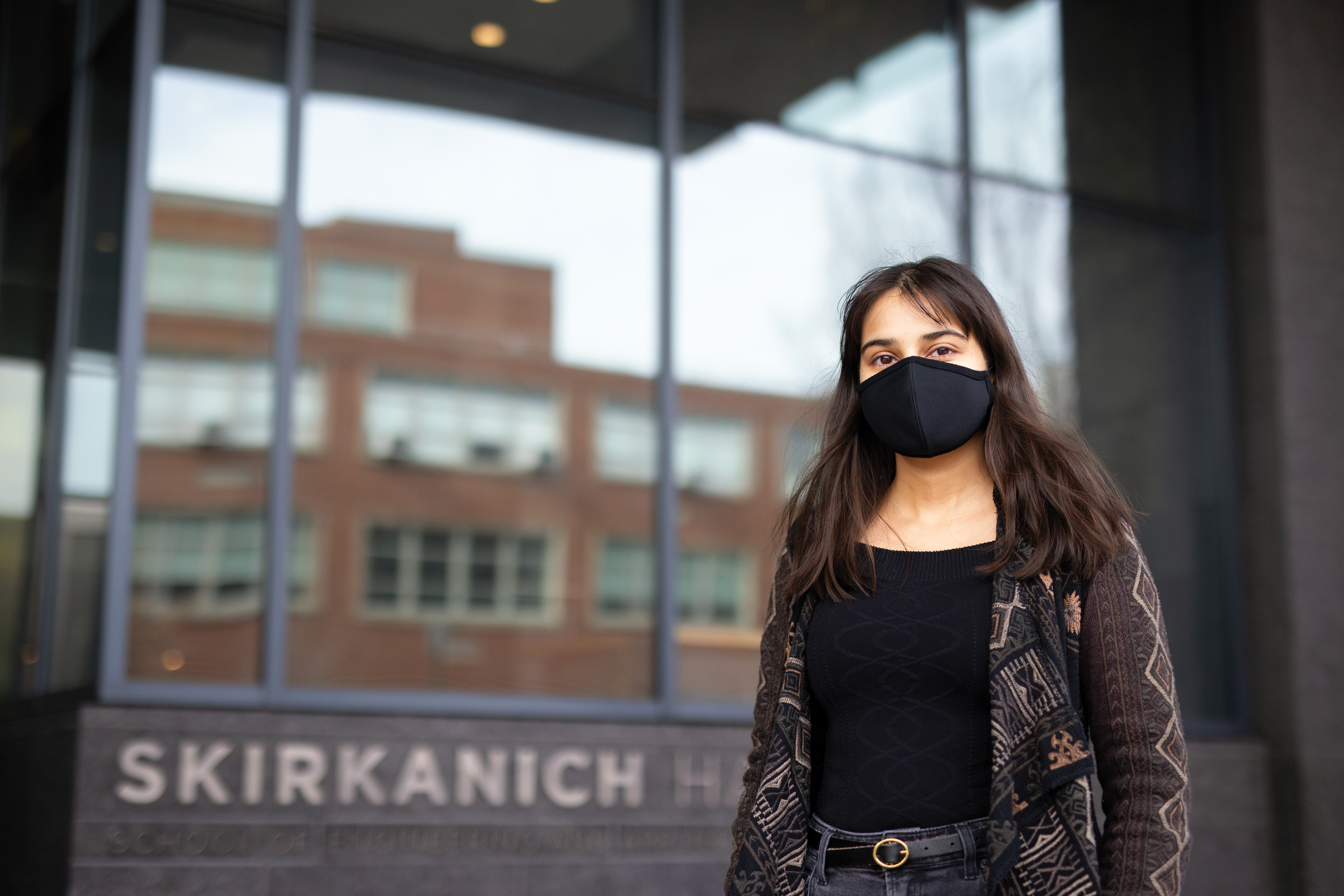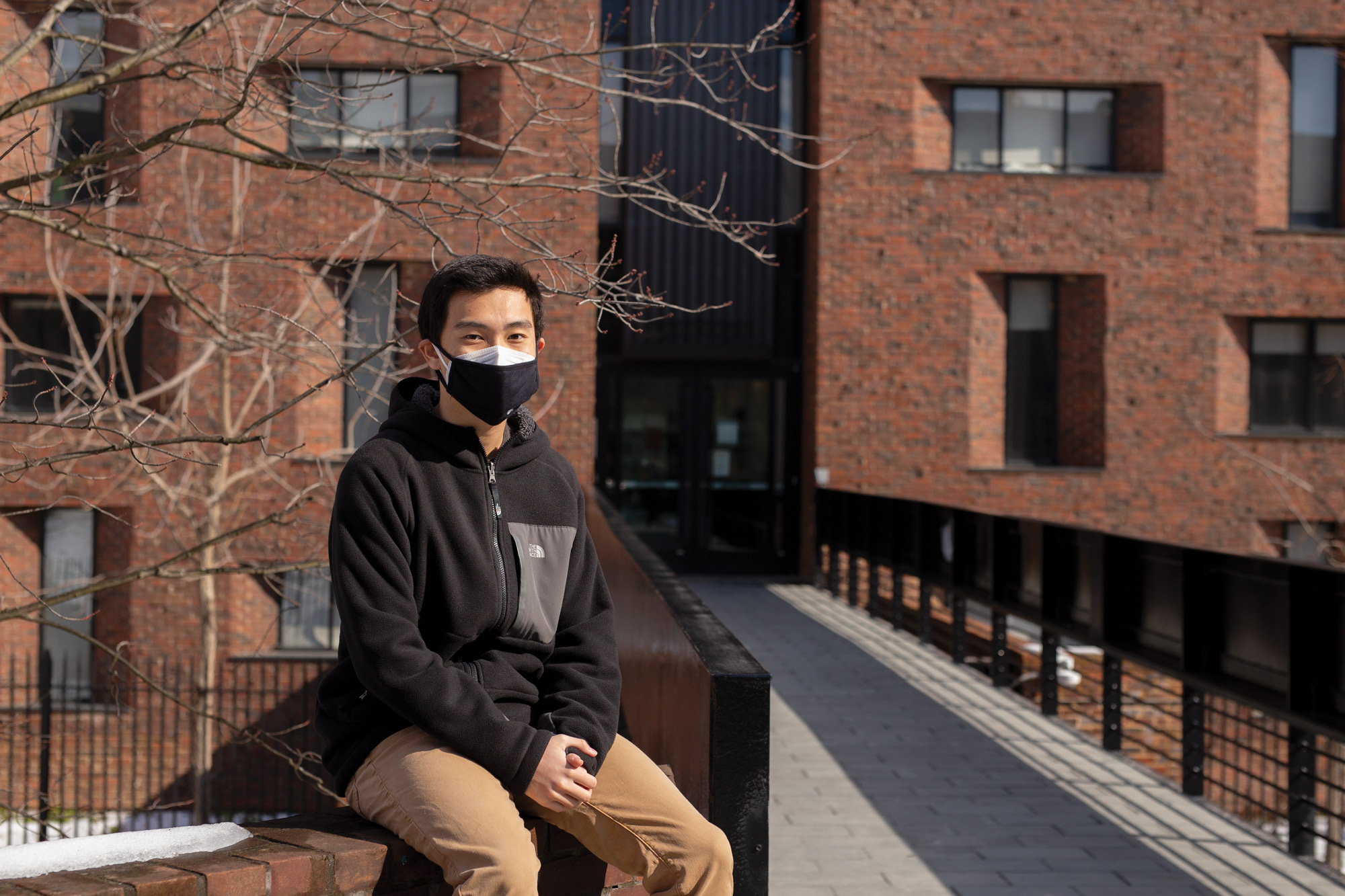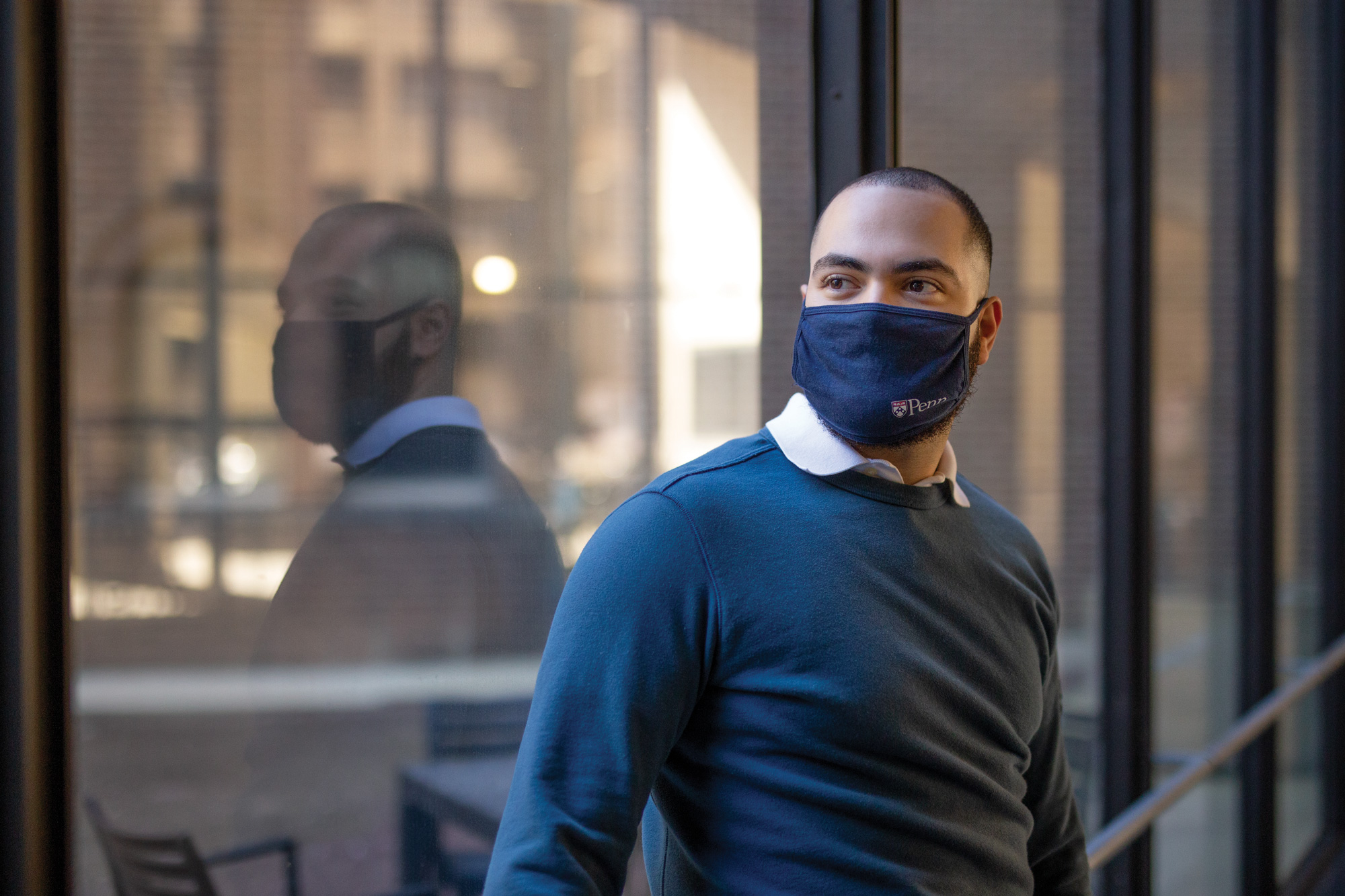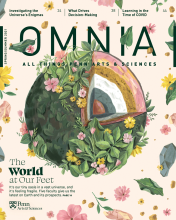Learning in the Time of COVID
Undergraduates reflect on their educational—and personal—experiences during the pandemic.
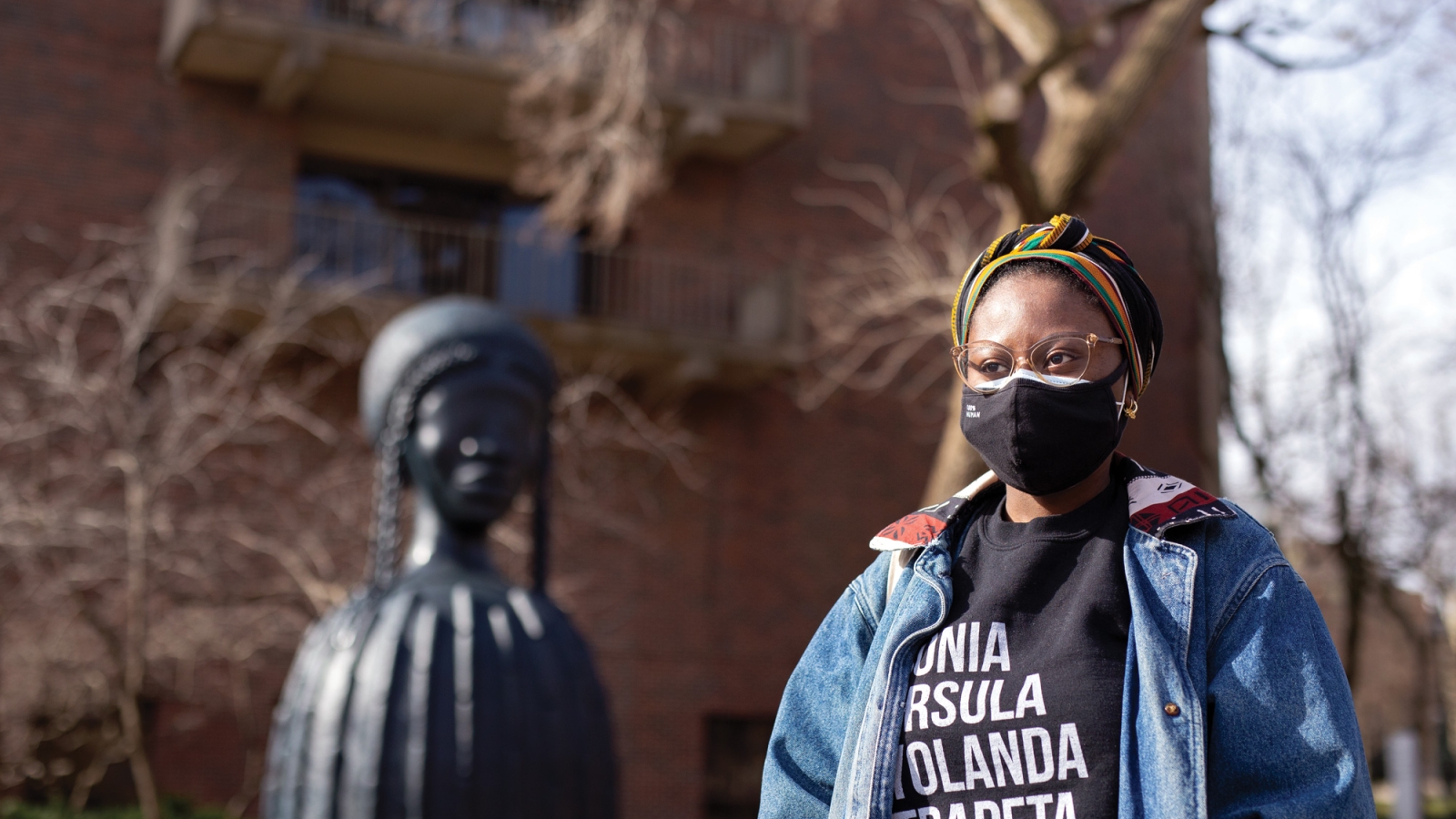
The pandemic has changed the landscape of learning, and adapting has been a challenge for everyone in higher education. But for undergraduates, who are still navigating through waters of self-discovery, being flexible in the face of constant change is a tall order. Here, we speak with five undergraduates about that experience: the challenges of remote learning, the surprising discovery of new interests, and how the virus has shaped their time in the College and their future plans.
Husnaa Haajarah Hashim, C’22
Chance encounters while walking down Locust Walk, baking with friends at Kelly Writers House—it’s the little things that Husnaa Haajarah Hashim (pictured above), who is majoring in Africana Studies and minoring in creative writing, misses most. But the pandemic has also afforded her time to reflect and grow in different ways. “I’ve noticed things popping up more in other places of my life, and the anxiety of being surrounded by so much information has definitely quieted,” says Hashim, whose shirt depicts the names of various Black women poet pioneers of Philadelphia. “In that contemplation, I have dedicated more time to myself, and more time to journal. I think that’s helped me academically, because I’m able to go inward, and that’s something I want to continue.”
Though her classes are remote, Hashim says flexibility from instructors and faculty has opened the door to spaces to talk more casually. “One of the courses I’m taking is called Global Blackface, Minstrelsy, and Passing, taught by [Christopher H. Browne Distinguished Professor of History and Africana Studies] Eve Troutt Powell,” says Hashim, who hopes to travel abroad either her senior year, or after she graduates. “What I appreciate about the course is being able to share my own experiences and engage with the content, but also having time to check in and just ask the others, ‘How are you?’”
James Nycz, C’21
To James Nycz, the spring semester felt different. “Last semester, when I’d go on an 8 p.m. walk around campus, there would be no one in sight. It was very eerie. But now you’re seeing more people. I think we’re starting to feel a bit more like normal.” A political science and classical studies double major, Nycz has a strong interest in local history and politics and was a poll worker in the 2020 election. He also serves as treasurer of the historical commission in his Bucks County town. As he explains, “I want to make sure that young people are represented in the room when there’s a township board meeting. Maybe only 15 percent of the population is under the age of 30 in my township, but it should still be that someone under the age of 60 is sitting there listening and can chime in if they need to.”
In reflecting on the challenges that everyone will continue to face in a post-pandemic world, Nycz says, “I have a lot of hope in the young people of this country. I think that we have a lot to offer and that we also are willing to take our country into our own hands.” Nycz has been accepted to graduate programs abroad and, if funding allows, his next step will add a global perspective to his interest in politics.
Samira Mehta, C’21
Samira Mehta, a biochemistry major, was well-versed in conducting research in the lab, but with that research being remote, and the pandemic stirring up various emotions, she decided to take a leap and enroll in creative writing classes—and ended up declaring a minor in the subject. “There was a lot I was processing,” she explains, “so I just started to write about it.”
Mehta says her professors have successfully adapted courses to the new remote setting. “In my Future of Water class, we were supposed to take a trip to Washington, D.C. to meet people who worked on water policy. Instead, we ended up having guest speakers, like leaders in water from giant companies and policymakers—really big names.” And in a course that focused on animal diversity, the principal investigator of a paper she and her classmates had read that week gave a remote lecture from Copenhagen. “I think these kinds of opportunities can only happen because of the use of platforms like Zoom,” Mehta says.
Last semester, Mehta, who is in the Vagelos Scholars Program in the Molecular Life Sciences, was able to return to the lab—which designs organ-on-a-chip technology that models the functional units of organs—where she works on modeling vessels within the devices. Reflecting on her future plans to complete combined M.D.-M.P.H. programs, she says, “The pandemic has really highlighted a lot of global health disparities, so I’m planning to apply for a master’s in public health, because I really want to be part of addressing these challenges.”
Ren Yagawara, C’24
The pandemic hit in March of Ren Yagawara’s senior year in high school. “I think COVID had a bit to do with even choosing to come to Penn, because I’m from Philly,” says Yagawara, who was accepted into the Integrated Studies Program, a first-year curriculum for Benjamin Franklin Scholars that is deeply rooted in the liberal arts tradition of acquiring and applying expansive knowledge. “So, there was a part of me that wanted to stay close to home, just because I didn’t know how all of this would pan out.”
When it comes to his studies, Yagawara says that the pandemic has made for a different approach to test-taking. “Because of the pandemic, our tests are nothing like any I’ve taken before,” he says. “Now they are all open book and open notes because we’re taking them online. So, instead of just memorizing what we learn, we need to fully grasp the concepts and know how to apply them.”
Yagawara, who has yet to declare a major, is also a writer for the Daily Pennsylvanian, and an Ultimate Frisbee player to boot. “One of my most memorable experiences is having workouts over Zoom for Ultimate Frisbee,” he says. “The vast majority of us were at home, but to stay in shape we had 40-minute sessions every week. I am looking forward to practicing in the open field and competing at tournaments.”
Omar Husni, C’22
A medical anthropology and health and societies major, Omar Husni had planned to spend last summer in Guatemala, learning about healthcare in the context of a Central American country. When the pandemic forced him to abandon those plans, Husni was able to find a new opportunity, working on a community health assessment project with the Sayre Health Center in the Cobbs Creek area of West Philadelphia. He has stayed involved at Sayre throughout the year, and this spring assisted in its vaccine distribution effort—an activity he found especially rewarding. “I get to see older folks come in, their families and children,” he notes, “and people stand in lines and they’re very patient. They’re very eager.”
Husni is hoping to take his involvement in the Cobbs Creek community a step further; the health assessment team has applied for a grant to pilot initiatives intended to address the health needs they uncovered in the course of their assessment project. If funding is received, that’s how he’ll be spending this summer. Overall, Husni says, “I’m very happy with how things unfolded.”
